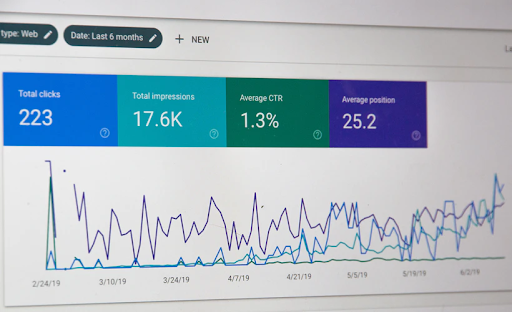A Guide to CRM

Do you have a customer relationship management tool in place for your business? They’ve been around a while, but it’s now more important than ever to streamline marketing, improve customer experience, and generate leads, among other great ways to grow your business. For those businesses that have been on the fence about adopting a CRM system, it’s time to implement a solution to help ease post-pandemic recovery.
What Is CRM?
These tools come in all shapes and sizes, but the basic definition is that the tool integrates all of the engagement your business has with both current customers and those you hope to draw in. The tools then distill that data and all of those interactions to actionable insight that drives revenue. It can also streamline marketing automation and customer service in one simple dashboard.
Why Use CRM?
The relationships you have with customers and clients matter now more than ever, especially for businesses that have branched into eCommerce and have fewer face-to-face interactions. Every time someone takes action to engage with your business’s digital assets (social media, website clicks, booking an appointment) your CRM tool will add that data to its collection. This serves to help quantify the actions you’re taking to maintain and nurture customer relationships.

Segmentation
CRMs continuously collect data and then work to define that data into groups based on keywords, interests, purchases, and more. Segmentation of your customers can organize them into groups that you can then interact with based on unique characteristics. How you move forward with new customers who haven’t yet made a purchase will be much different than how you follow up with shoppers who have already bought from you. Segmentation makes it easy to get a big-picture look at how you can continue the conversation based on where they are in the purchase process.
Personalization
Not everyone who comes to a website will be on the same buyer’s journey, and using CRM to meet them where they are with personalized information will push them to take the next steps towards making a purchase. Personalization is key now more than ever and you need to find ways for your message to cut through the noise. Data from segmentation can be carried through to the personalization process; one good example is using automation to trigger a series of emails based on website visitor information and interests.

Predictive Analysis
Many (if not all) CRM solutions use artificial intelligence (AI) to make it more than just a virtual Rolodex of customer data. AI features track customer patterns and suggest to retailers what shoppers will need before they even need it, giving businesses an opportunity to ensure inventory is available. AI-based CRM tools can track favorite purchases and average purchase amounts, automatically send discount offers, or generate news about the business.
Agility
Cloud-based CRMs with cybersecurity features allow business owners and salespeople to access all the data collected on mobile devices when they want from wherever. Customer data can’t be siloed in a computer database that’s only accessed from a physical office or storefront; users should be able to access it from remote locations.
CRMs can be a valuable tool for any size business to gain a competitive edge during a time when recovery is on everyone’s mind, and customer interactions are key to keeping doors open. If you’re ready to get serious about continuity, consistency, and results in your marketing, you need an experienced professional to help you build and deploy a marketing system to land your new best customers.
Digital marketing, content marketing, SEO, website creation, social media, and email can be confusing and overwhelming. So why add in the need to manage different vendors across every channel? Free up your time and lower your overall costs with one of our marketing packages. We combine effective marketing tactics into practical, proven marketing systems — contact us today to get started!
The post A Guide to CRM appeared first on Cole Dalton.









